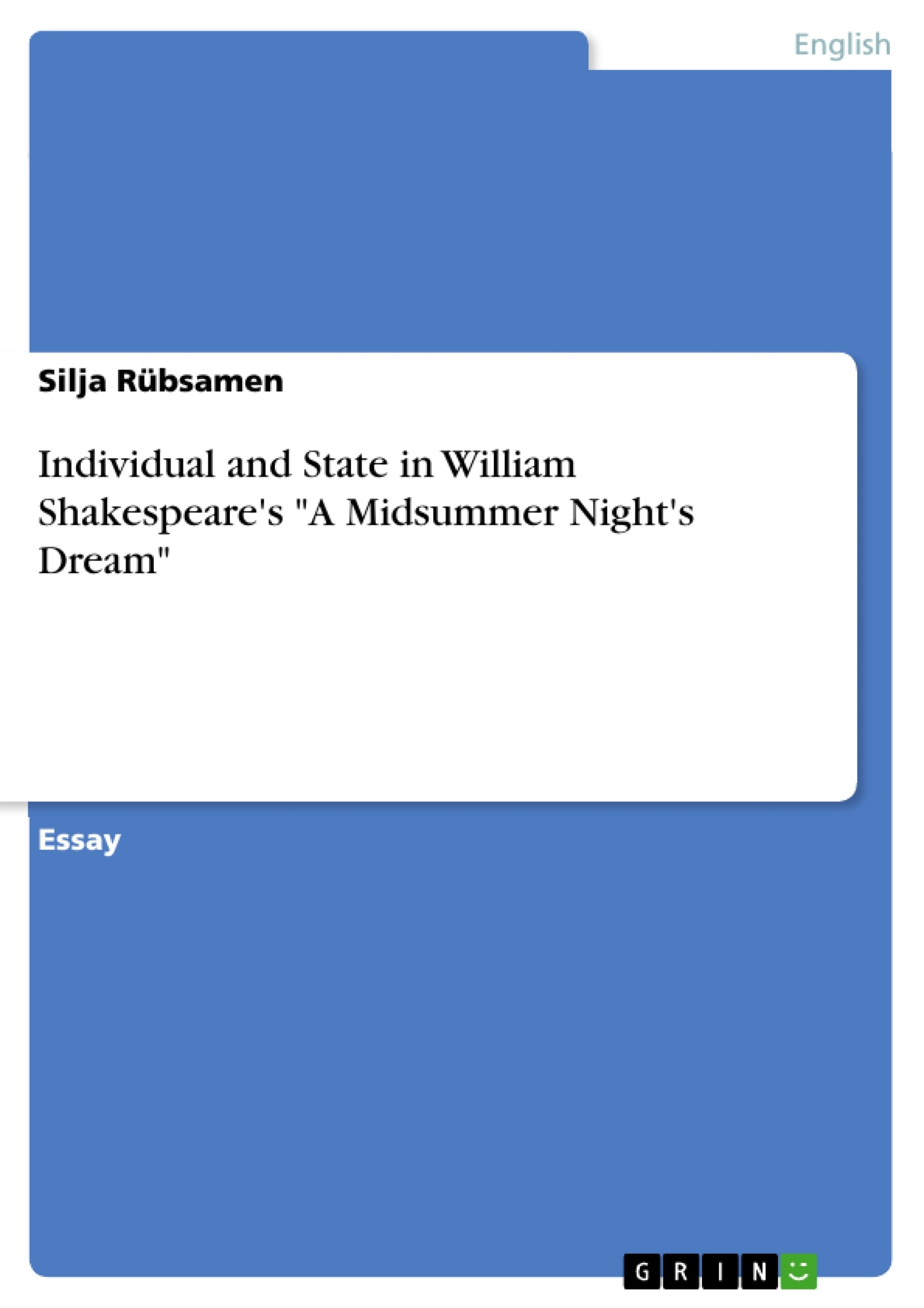„A Midsummer Night´s Dream and The Tempest, a play it prefigures in important ways, share the distinction of illustrating better than any other plays Shakespeare´s device of juxtaposing extremes for the purpose of indicating a golden mean.“
Peter G. Philias remarks that Shakespeare’s Midsummer Night’s Dream is a play that lives of seemingly incompatible contradictions: civilization and nature are juxtaposed in the confrontation of the court of Athens and the woods; man and woman are working against each other in the unequal parts of Theseus and Hippolyta, Oberon and Titania, and arch-conservative Egeus and his daughter Hermia.
It seems consensual to state that – on the deep structure level – the contradiction between “doting”, the fixation of a lover on a partner who does not return the affections, and “cool reason” forms the common ground of these and several other antagonisms. But although I consent to this view, I would also like to deny the reduction of this play to a mere love story – a view expressed by Philias, who claims that had been Shakespeare’s intention „to comopse a play presenting sudden conflict between lovers as well as antithetical attitudes toward love.“
I am convinced that the contents of A Midsummer Night’s Dream go far beyond the topics of family conflict or interpersonal relationship. The basic conflict between reason and emotion can only become the departing point of the story because it triggers an underlying conflict between individual and society, respectively between individual and state.
„Every Shakespearean character lives within a political regime governed laws and shaped by distinctive institutions. How a character lives acts and how he perceives his deeds is affected, sometimes crucially affected, by his participation in the corporate life of a city or realm.“
The aim of this paper is to demonstrate where the conflict lies between the individual and the state, respectively its institutions and the officials who represent them, and how it is solved so that the final scenes can indeed be regarded as the establishment of an ideal state of affairs – ideal in the sense of what Philias calls the “golden means”.
Inhaltsverzeichnis (Table of Contents)
- Introduction
- Argument
Zielsetzung und Themenschwerpunkte (Objectives and Key Themes)
This paper aims to demonstrate the conflict between the individual and the state in William Shakespeare's A Midsummer Night's Dream, exploring how this conflict is resolved and ultimately leading to the establishment of an ideal state of affairs. The paper focuses on the play's juxtaposition of extremes, highlighting the "golden mean" that Shakespeare presents.
- The conflict between reason and emotion
- The tension between individual needs and societal laws
- The role of the state in regulating individual behavior
- The concept of "doting" and its relationship to irrationality
- The portrayal of love as a complex force that can both challenge and strengthen society
Zusammenfassung der Kapitel (Chapter Summaries)
- Introduction: This chapter introduces the play A Midsummer Night's Dream and its depiction of the conflict between extremes, focusing on the juxtaposition of civilization and nature, as well as the tension between reason and emotion. It argues that the play's core theme extends beyond love and family conflict to encompass the broader conflict between the individual and the state.
- Argument: This chapter analyzes the opening scenes of the play, focusing on Theseus' role as the duke of Athens and his representation of the state. It examines his initial approach to love and his insistence on the supremacy of state laws over individual desires. The chapter further explores the characters' struggle with love, particularly Hermia and Lysander's desire for freedom and their resistance against the state's rigid regulations.
Schlüsselwörter (Keywords)
This paper explores the themes of individual and state, reason and emotion, love and society, "golden mean," Athenian law, love as a political force, and "doting" within the context of William Shakespeare's A Midsummer Night's Dream.
- Quote paper
- Silja Rübsamen (Author), 2002, Individual and State in William Shakespeare's "A Midsummer Night's Dream", Munich, GRIN Verlag, https://www.grin.com/document/55906




